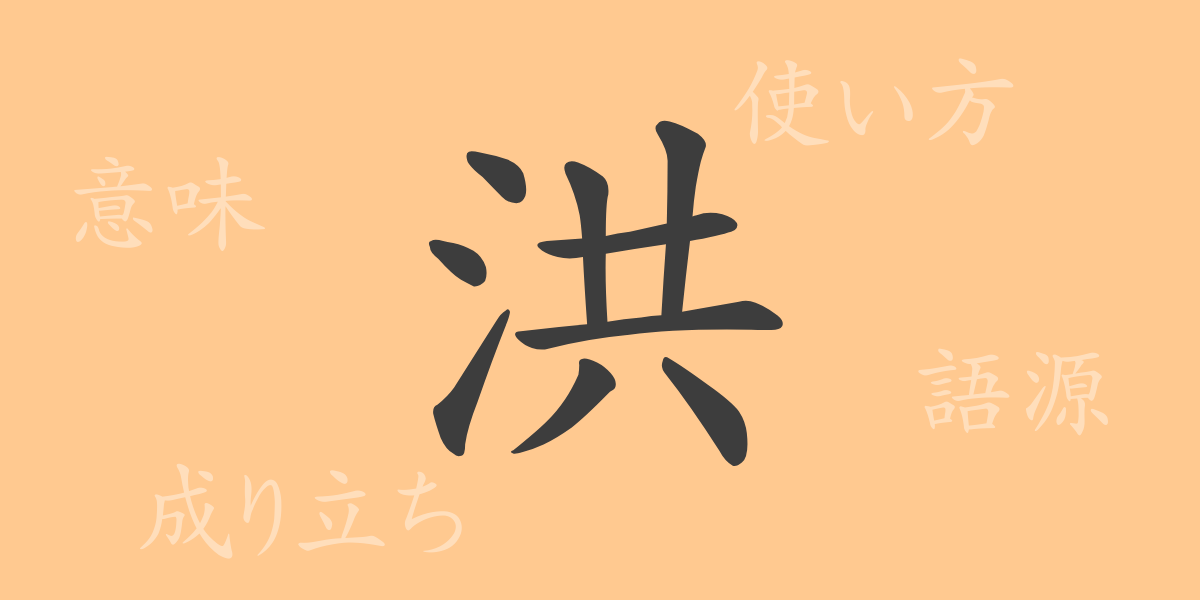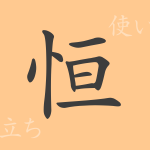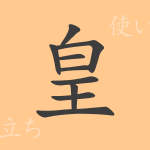The meaning of a single kanji character is deeply rooted in its form and history. The common Japanese kanji “洪(こう)” not only represents the grandeur of natural phenomena but also plays an important role in culture and language. This article delves into the charm of “洪(こう),” from its origin to its usage examples.
Origin of 洪(こう)
The kanji “洪(こう)” originated from ancient Chinese pictographs that symbolized a large body of water. Initially, it depicted the overflowing of water, later becoming established as a character meaning flood. “洪(こう)” is a water-related kanji, and its origin reflects the relationship between the forces of nature and human perception.
Meaning and Usage of 洪(こう)
“洪(こう)” means “large” or “great” and is commonly used in words such as “洪大(こうだい)” (vast) and “洪水(こうずい)” (flood). In the context of natural phenomena, “洪水(こうずい)” refers to a large-scale water disaster. It is also used metaphorically, as in “洪の如き(こうのごとき)” meaning “as vast as a flood” or “immense.”
Reading, Stroke Count, and Radical of 洪(こう)
The readings and structural elements of “洪(こう)” reflect its diverse usage.
- Reading: The on-yomi (Chinese reading) is “コウ,” with no kun-yomi (Japanese reading).
- Stroke Count: 9 strokes.
- Radical: 氵(さんずい) – Classified under water-related kanji.
Idioms, Phrases, and Proverbs Using 洪(こう)
Idioms and phrases containing “洪(こう)” strongly reflect its powerful imagery. For example, “洪水(こうずい)” refers to a natural disaster, and “洪積層(こうせきそう)” is a term in geology referring to sediment layers. Additionally, the idiom “洪範(こうはん)” means a vast and boundless principle or teaching, often quoted in classical literature.
Conclusion on 洪(こう)
The kanji “洪(こう)” carries the image of vast water and is used in various expressions in Japanese. From words describing natural phenomena to concepts related to human activities and thoughts, “洪(こう)” encompasses a wide range of meanings. Understanding the deep history and significance embedded in a single character is key to using language more richly.

























